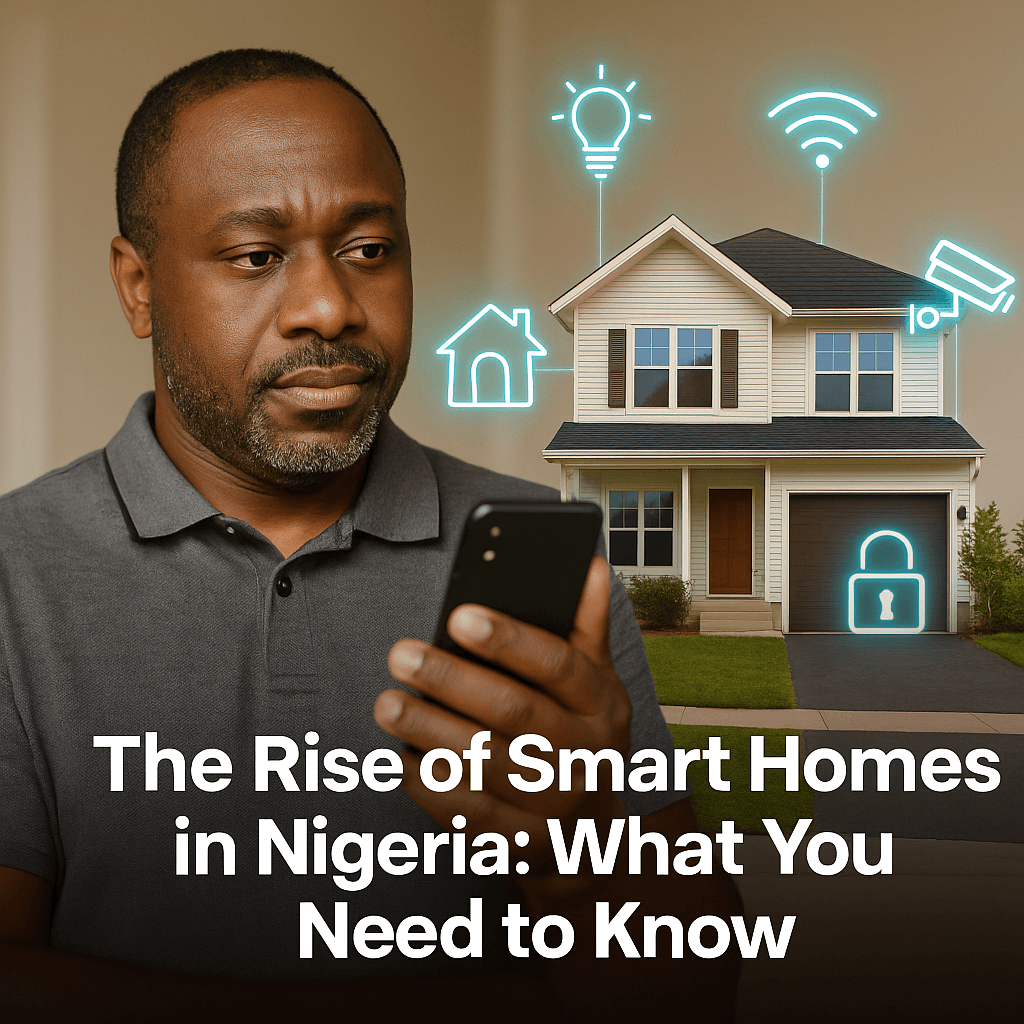Smart homes are no longer the future—they’re already transforming how Nigerians live today. With rapid urbanization, a tech-savvy youth population, and the rising need for security and convenience, smart homes are becoming a compelling feature in Nigeria’s evolving real estate market.
But what exactly is a smart home? And why should buyers, developers, and investors care?
What is a Smart Home?
A smart home is a residential space equipped with internet-connected devices that allow remote control and automation of systems such as lighting, security, energy, and entertainment. These homes can be managed through smartphones, tablets, or voice assistants like Alexa or Google Home.
In Nigeria, the most common smart features include:
- Automated lighting and temperature control
- Remote-controlled gates and doors
- CCTV and smart security systems
- Solar integration with energy monitoring
- Smart water leak and gas detectors
Why Smart Homes are Gaining Popularity in Nigeria
1. Security is a Priority
Due to rising concerns about home safety, many Nigerian homeowners are investing in smart CCTV, motion sensors, and automated gates. These features offer peace of mind, especially for diaspora Nigerians monitoring their properties from abroad.
2. Energy Efficiency and Alternative Power
With irregular electricity supply, integrating smart systems with solar panels and energy-saving devices helps reduce costs and optimize usage. Devices like smart inverters allow homeowners to monitor and manage energy consumption in real time.
3. Real Estate Differentiation
Developers now use smart technology as a unique selling point, especially in gated estates and luxury apartments. A smart-enabled property attracts higher valuations and often sells faster.
4. Tech-Savvy Youth and Diaspora Buyers
Millennials and diaspora Nigerians are increasingly interested in homes that reflect their modern lifestyles. Smart features offer the convenience and control they desire, from thousands of miles away.
What Does It Cost to Own a Smart Home in Nigeria?
Smart home technology in Nigeria ranges from affordable upgrades (like smart bulbs and Wi-Fi-enabled plugs) to high-end integrated systems.
| Smart Feature | Approximate Cost Range |
|---|---|
| Smart Lighting Systems | ₦60,000 – ₦200,000 |
| CCTV + Smart Security | ₦200,000 – ₦1 million |
| Smart Doorbells/Gates | ₦50,000 – ₦300,000 |
| Solar + Smart Inverter Setup | ₦1.5 million – ₦5 million |
| Whole-Home Automation Suite | ₦2 million – ₦10 million+ |
Tip: Start small. You can gradually scale up from one or two smart features to full automation as your budget grows.
Things to Consider Before Going Smart
- Internet Reliability: Ensure stable internet connection. Most smart systems require consistent connectivity.
- Power Supply: Solar backups or inverters are helpful for uninterrupted functionality.
- Vendor Support: Work with reliable vendors offering after-sales service and tech support.
- Security: Secure your smart devices with strong passwords and updated software to prevent hacking.
Future Trends: What’s Next?
- Integration with fintech for rent collection and utility billing
- Use of AI for predictive maintenance alerts
- PropTech platforms offering virtual smart home tours
Final Thoughts
Smart homes are redefining how we think about living spaces in Nigeria. Whether you’re a developer looking to appeal to high-end buyers, a landlord wanting remote management, or a diaspora buyer seeking long-distance control, smart home technology offers real solutions.
At Lands of Nigeria, we believe every homebuyer should understand the possibilities that tech-enabled living brings. Ready to explore smart home properties or upgrade your current one? Reach out to us today and let’s get started!




